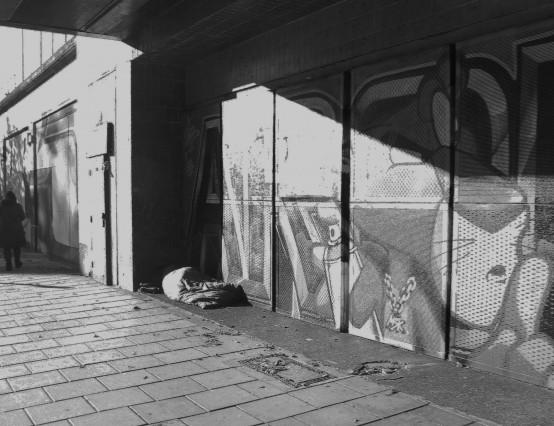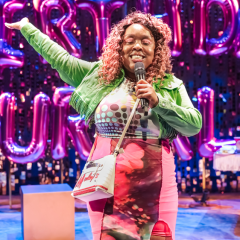Inspired by Brexit, and the 'Me Too' movement this play represents the difficulties and issues that are confronting our society today. The play is comprised of a series of scenes which take place within a shabby, disordered office in a Northern working-class school.
The character Frank, on whose actions the plot is constructed, represents an older more conservative generation. His character introduces the themes that come to the fore in this play; a Nigel Farage supporter and his sexist comments about women all suggest an outdated way of thinking.
Frank’s counter-part is Carol, whose character contrasts Frank’s staunched conservatism with youthful liberalism. More importantly she represents women and the issues they face. The Me Too movement is brought into focus by the series of sexual comments made by Frank throughout the play and the accusation of sexual misconduct which the play centres around. The disparity in social and political beliefs sets up the paradigm of old and new which is explored though the characters and their attitudes.
Carol, whose goofiness and bad jokes initially present a naive and clownish persona, becomes the victim of sexual harassment as she quickly looses her youthful innocence. The lack of sensitivity and brusqueness with which Carol is treated draws the attention of the audience to the ways in which the issue is handled. The intention of this scene was clear but the final impression was a little unbelievable as the scene became too exaggerated.
As the play progresses, the narrative grows heavier and more complex as further issues are introduced. Teenage pregnancy, homosexuality, and nostalgic references to “the days when Waggon Wheels were bigger, Freddos cost 10p and you could go to ASDA and be served by a human being” all succeed in getting the audience to reflect on the direction our society is changing.
The overall effect is of a mix between comedy- that reaches a little too far for comedic effect verging on pantomime- and a serious message about how we conduct ourselves in today's society. In such a short space of time, the play covers a lot of ground with many characters and themes: almost too many to do the story justice, as the narrative seems to jump between the various threads of the story. Furthermore, a couple of scenes seemed incongruent with the overarching plot line, therefore distracting from the core focus of the play. Consequently, the script culminates to a quickly tied-off conclusion that attempts to neatly resolve all the characters problems in a definitive way. The play would have accomplished more by focussing on fewer characters and to leave the ending somewhat open.
Overall, the principle characters are well developed and complex; they emphasise that people are not wholly good or wholly bad; what this play does successfully is to show that social attitudes are in a constantly evolving state. The attitudes are revealed in such a way that allows the audience to reach a decision for themselves, but also suggests that there is still work to be done in society and this is the responsibility of the audience to carry out in their own lives. The play closes symbolically, suggesting that things are moving forward, and that we have to change with the times. We cannot be stuck in the past to create new beginnings.








0 Comments